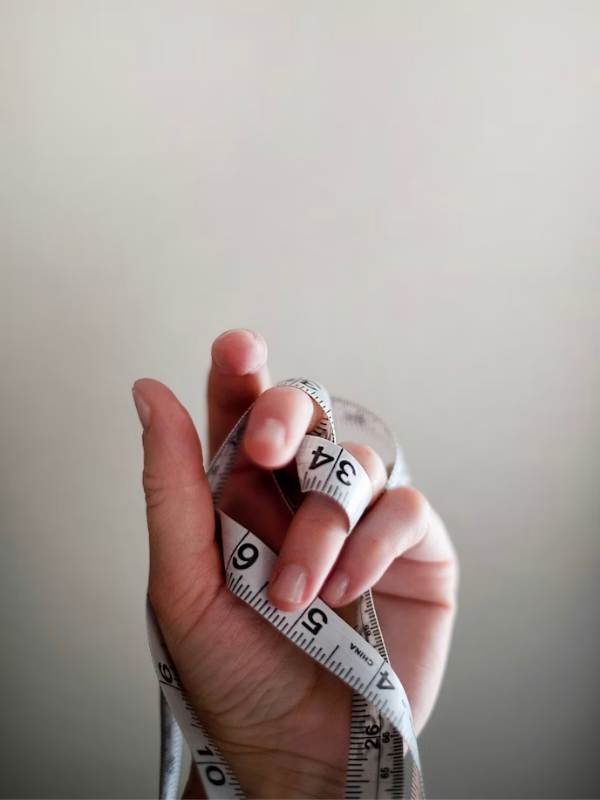Fat Empowerment
What Is Fat Acceptance?
Fat acceptance acknowledges that all bodies, including large ones, deserve respect and have inherent worth. Fat acceptance has roots in social liberation, with a focus on dismantling the oppression that people face due to their size. In a society that’s filled with anti-fat rhetoric, fat acceptance is about feeling proud, loved, and cared for in one’s body.
Fat activism, fat pride, and fat empowerment, all other words for Fat Acceptance, has a simple premise–everyone deserves love, regardless of their body shape or size. iFat Acceptance is a movement that aims to challenge societal beauty standards and promote self-acceptance and respect for people of all body sizes, particularly those who are fat or plus-sized. It seeks to counteract weight-based discrimination, bias, and stigmatization.
The National Association to Advance Fat Acceptance (NAAFA) is one of the main leaders in this movement. This nonprofit organization seeks to liberate fat people from fat shaming and body shaming, and advocate against all forms of fatphobia.
Are you struggling with Fat Empowerment? Text us now at 615-570-1190 to get started.

Challenges Fat People Face
Fat people face oppression and difficulty in many walks of life, including the workplace, public spaces, healthcare settings, and their portrayal in mainstream media. Fatness often coincides with microaggressions and assumptions about laziness, poor willpower, carelessness, or inattentiveness. This is harmful, as stereotyping people who are overweight based on their looks causes others to miss out on getting to know an individual’s unique personality and traits.
Unique challenges that fat people face in modern society include:
Healthcare discrimination:
Fat people often feel dismissed, judged, or shamed by doctors for their health concerns. This discrimination can make seeking healthcare treatment feel incredibly anxiety-provoking, and it may contribute to medical trauma.
Workplace prejudice:
Weight discrimination is a rampant issue in the workplace.
Fat tax:
Plus-size clothing and items for fat people typically cost more than the same items for straight sizes.
Travel difficulties:
Cars, planes, and trains do not always accommodate fat people. Extra comforts typically require extra fees.
Direct bullying:
Many fat people are bullied due to their size. Children can be especially prone to direct bullying, violence, and group exclusion.
Dating difficulties:
Fat people often report challenges with dating. Valid fears about feeling dehumanized or fetishized pose significant barriers when meeting new people.
The core principles of fat empowerment involve:
1. Acceptance and Respect: Recognizing that bodies come in diverse shapes and sizes, and promoting respect and acceptance for all bodies, including those that are fat.
2. Self-Love and Self-Care: Encouraging individuals to cultivate a positive body image and prioritize their mental and physical well-being, regardless of their size.
3. Challenging Weight Bias: Advocating against weight-based discrimination, prejudice, and societal biases that perpetuate negative stereotypes and harm individuals based on their body size.
4. Health at Every Size (HAES): Emphasizing that health is not determined solely by body weight and that individuals can pursue holistic health goals irrespective of their size.
5. Body Autonomy and Representation: Promoting body autonomy and the visibility of diverse body types in media, fashion, and other public platforms, advocating for inclusivity and representation.
Fat empowerment movements aim to create a more inclusive and equitable society that values and respects individuals of all body sizes, challenges harmful societal norms, and encourages self-acceptance and well-being.

How People Can Advocate for the Fat Acceptance Movement
Regardless of your size, you can be an ally for fat acceptance. Remember that small changes can make extraordinary differences. Being a positive role model may influence others to think in a different direction.
You can help advocate for the fat acceptance movement by:
Exploring your own biases:
It’s possible that you have internalized fatphobia. Consider how this affects you in everyday life and potentially leads you to treat people differently.
Educating yourself on fatphobia and fat liberation:
Read up on or follow activists promoting fat acceptance. Learn about their struggles and the steps they’re taking to improve our society.
Calling out biased comments:
When you know better, you do better, so don’t be complicit to anti-fat bias. Let people know that you don’t condone their criticism, sarcasm, or mean-spirited jokes about fat people.
Being inclusive with friends:
Consider activities that accommodate your fat friends and family. Ask for their input and be mindful of choosing places that have more accessible options.
Stopping diet talk or lamenting about body image issues:
When people get together and bash their own bodies, they don’t make themselves feel better. And many times, they simply alienate fat people by perpetuating a stigma against their body types.
Are you struggling with Fat Empowerment? Text us now at 615-570-1190 to get started.
People who may benefit from a fat-friendly therapist include:

1. Fat individuals seeking support for body acceptance and self-esteem
2. Those struggling with weight-related shame or discrimination.
Fat-friendly therapists can provide a safe space to address experiences of weight bias, explore emotional well-being, and develop strategies for coping with societal pressures.
3. Individuals with disordered eating or body image concerns.
Therapy can assist in healing relationships with food, promoting intuitive eating, and challenging harmful societal messages about body size.
4. People seeking support for weight-neutral health behaviors.
A fat-friendly therapist can help individuals develop sustainable health behaviors, such as engaging in joyful movement, prioritizing self-care, and making informed decisions about their well-being.
5. Those with mental health concerns unrelated to body size: A fat-friendly therapist can address a range of mental health issues, such as anxiety, depression, trauma, or relationship difficulties, without focusing on body weight or prescribing weight loss as a solution.
Remember, everyone’s needs and experiences are unique, and it’s important to find a therapist who aligns with your values and understands your specific concerns. Therapy can help individuals explore body acceptance, build self-esteem, develop coping strategies, and address any underlying emotional or psychological issues. It’s essential to find a therapist who creates a safe and supportive environment for all clients, regardless of their size. Here at Works Counseling Center our therapists understand the fat acceptance movement and are happy to work with you!
